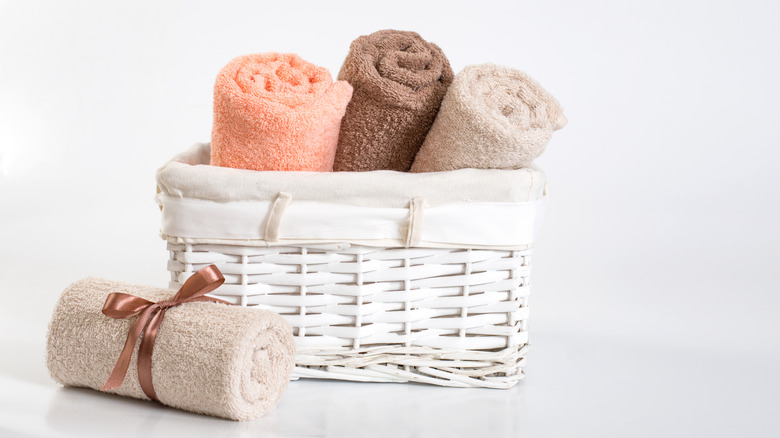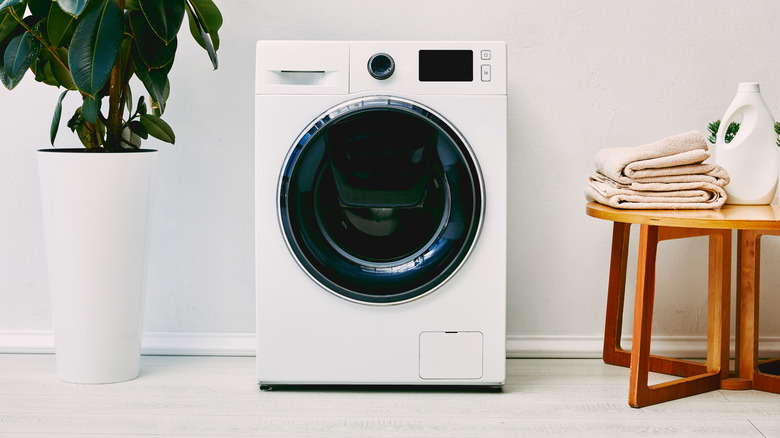This Is How Often You Should Be Washing Your Towels
Although it can be difficult to keep track of how often you wash your towels, it's important to remember to clean them on a regular basis. If left unwashed for too long, bath and face towels can actually become a breeding ground for bacteria (via Business Insider).
That's because towels are very absorbent and are often left moist or wet after each use, which is the perfect environment for unwanted germs and bacteria to grow and thrive. The longer a towel stays damp, the longer mold, bacteria, and yeast will remain on the towel. These microorganisms can be transferred onto your skin when you dry off after taking a shower or washing your face.
"They can cause an outbreak of toenail fungus, athlete's foot, jock itch and warts, or cause these skin conditions to spread," dermatologist Alok Vij, M.D., told the Cleveland Clinic. "And dirty towels can certainly cause a flare-up of eczema or atopic dermatitis." That's why you should wash your towels after every three uses. This will help prevent unwanted bacteria from growing on your towels in the first place.
The best way to wash your towels
However, it's not enough to just wash your towels more frequently. You also have to wash them the right way. That means washing them in a way that will most effectively kill harmful germs and bacteria. The best way to do that is by washing your towels in hot water (via Mindbodygreen). Since E. coli and other fecal bacteria can survive cold water washes, you'll need to wash your towels in hot water in order to properly sanitize them and rid them of any unwanted bacteria.
Another way to effectively sterilize your towels is to add vinegar to your rinse cycle (via Healthline). Washing your towels with both laundry detergent and vinegar can help remove odors and kill any lingering bacteria in the washing machine. It's important to let your towels air dry in between washes before you use them again or throw them in the hamper. This can help preserve a towel's freshness and prevent any further bacteria from growing.


